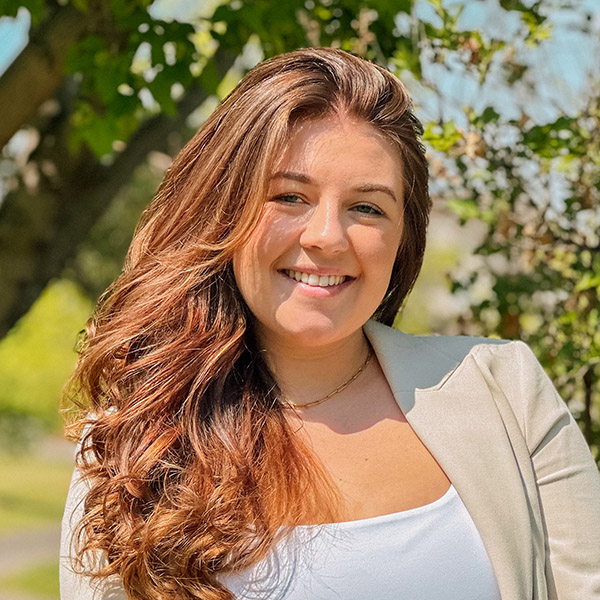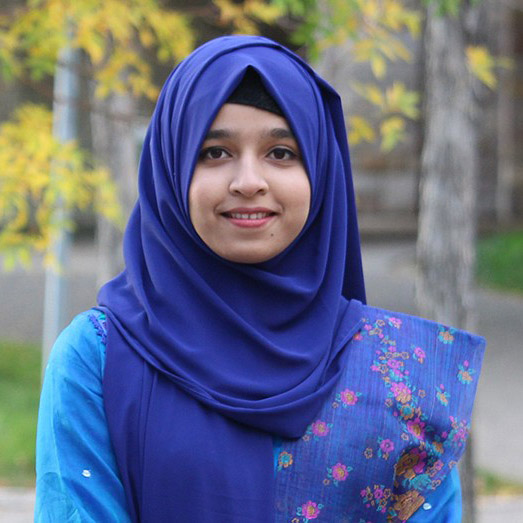
Three USask students recognized nationally with Vanier scholarships
Three University of Saskatchewan (USask) graduate students have received funding in recognition of their academic excellence, leadership skills, and innovative research potential.
By Kassidy GuyThe Vanier Canada Graduate Scholarships are among the most prestigious awards for doctoral students in Canada, offering $150,000 over three years to support world-class research, academic excellence and leadership.
Administered through Canada’s three federal granting agencies—the Canadian Institutes of Health Research (CIHR), the Natural Sciences and Engineering Research Council (NSERC), and the Social Sciences and Humanities Research Council (SSHRC)—the Vanier program aims to attract and retain top-tier talent across disciplines.
The University of Saskatchewan (USask) is proud to celebrate three exceptional doctoral students who have been awarded 2025 Vanier scholarships: two funded by NSERC and one by SSHRC.
“We are incredibly proud of our Vanier scholars and the remarkable contributions they are making in their fields,” said Dr. Debby Burshtyn (PhD), dean of the College of Graduate and Postdoctoral Studies. “USask is very fortunate to attract these research leaders to our graduate programs.”
Giving voice to parents with BPD

Arianna Gibson, a Métis doctoral student studying clinical psychology at the College of Arts and Science, is investigating the parenting experiences of people with borderline personality disorder (BPD).
BPD is a personality disorder characterized by emotional dysregulation, impulsivity, unstable self-image, self-harm, and suicidality. People diagnosed with BPD often face discrimination due to the stigma associated with the disorder.
While research on BPD and its impact on families is emerging, Gibson hopes to fill a gap by investigating the parent’s individual experiences from a strengths-based lens, rather than focusing primarily on the negative outcomes that may be experienced by other members of the family.
“[Parents with BPD] are seen as the disorder, rather than a whole person who has this disorder,” said Gibson. “I want to focus on reducing the stigma [of BPD] by coming in with a strengths-based perspective and focusing on support and prevention.”
Under the supervision of Dr. Jorden Cummings (PhD), Gibson will be conducting three different studies to learn more about the subjective experience of being a parent with a BPD diagnosis, the insights of mental health providers who work with them, and next steps for prevention and intervention.
For Gibson, the Vanier scholarship is an opportunity for more than just financial security: it offers a national stage for her work as a researcher.
“If I can contribute to the population of people with BPD experiencing less discrimination and getting more services and support that they need, that would make me so happy,” said Gibson. “While it might not change the whole world, I hope it changes the world of people with BPD.”
Gibson serves as a research co-ordinator for RESOLVE SK, a Prairie-based research network that co-ordinates and supports research aimed at ending violence. She has also spearheaded the Saskatchewan Anti-Violence research network, where her and her team have fostered community ties amongst anti-violence agencies across the province.
A path to greener pest solutions

Jeremy Irvine grew up in Melfort, Sask., where he began helping on the family farm at the age of 10. He is also a member of Yellow Quill First Nation on Treaty 4 territory.
Irvine is passionate about advocating for Indigenous scholars and encouraging the next generation of Indigenous youth to consider post-secondary education. He recently authored an article highlighting the importance of integrating Indigenous Knowledge into the traditional Western scientific approach to create a more inclusive and equitable academic landscape.
As a doctoral student under Dr. Sean Prager (PhD) at the College of Agriculture and Bioresources, Irvine is studying the lesser clover leaf weevil with the goal of developing a pheromone-based control method to protect red clover crops without the need for insecticides.
In Saskatchewan, red clover is often produced for seed and exported to warmer regions, where it’s used as a forage crop to feed livestock or a cover crop to improve soil quality. Red clover is insect-pollinated, and pollinators such as bumblebees are essential for producing high-quality seed.
Over the past two years, Irvine has worked to establish economic injury levels, determining the point at which the cost of pest damage exceeds the cost of control for producers. Now, he’s focused on creating a sustainable, evidence-based solution.
“By establishing economic thresholds and going forward with pheromone-based control methods, the goal is to help farmers protect their crops but also protect the pollinators that make red clover seed production possible.”
For Irvine, receiving the Vanier scholarship is not just a personal achievement, it’s also about community. As one of the first members of Yellow Quill First Nation to receive this award, he hopes this achievement can inspire others from his community to see themselves in research and higher education.
Connecting microalgal neurotoxins to learning

Working in the Department of Biology at the College of Arts and Science, Jinnath Rehana Ritu is trying to bridge environmental science and neurobehaviour to better understand the long-term risks of neurotoxin exposure.
Under the joint supervision of Dr. Douglas Chivers (PhD) and Dr. Maud Ferrari (PhD), Ritu is investigating a neurotoxin known as β-N-Methylamino-L-alanine (BMAA) and its effects on learning and memory in zebrafish, an animal that is genetically similar to humans.
The neurotoxin BMAA is produced by harmful algae blooms (HABs) that occur when microscopic algae grow rapidly, often forming a thick green layer on the water’s surface. Driven by pollution and warmer temperatures, HABs pose a serious threat to aquatic and human life.
The most alarming issue at hand is that BMAA can be transferred and accumulated up the food chain from microalgae to fish, and ultimately humans. BMAA has also been linked to neurogenerative diseases (NDD) including Alzheimer’s and Parkinson’s disease.
Ritu’s work investigates whether BMAA affects learning and memory in zebrafish. Learning and memory are crucial brain functions that help animals remember experiences and use that information to adapt and survive in a new environment. Many environmental contaminants have been found to impact the central nervous system, leading to learning and memory deficits in animals and this cognitive impairment is also linked to NDD.
“I want to explore how early exposure to BMAA could impact brain development and cognitive function over time,” said Ritu.
In her previous research, Ritu investigated how turning agricultural waste into a resource for cultivating green microalgae offers a low-cost, eco-friendly solution for advancing sustainable aquaculture. Now, her research findings will contribute to environmental protection and public health strategies, guiding policies to mitigate the risks posed by neurotoxins to both aquatic ecosystems and human well-being, benefiting the global community.
For Ritu, the Vanier scholarship is a profound honour and a significant source of motivation for fueling her unwavering dedication to advancing her research pursuits.
“It’s a reminder that the work I’m doing has real-world impact, and it strengthens my commitment to advancing science that protects both ecosystems and human health.”

